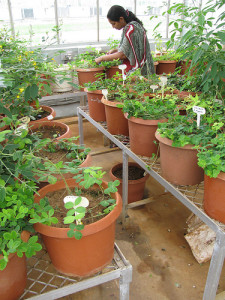 The deadline for submission of abstracts for the international conference on “Enhanced Genepool Utilization — Capturing wild relative and landrace diversity for crop improvement”, to be held at NIAB Innovation Farm, Cambridge, United Kingdom from 16-20 June 2014, is closing on the 29 January.
The deadline for submission of abstracts for the international conference on “Enhanced Genepool Utilization — Capturing wild relative and landrace diversity for crop improvement”, to be held at NIAB Innovation Farm, Cambridge, United Kingdom from 16-20 June 2014, is closing on the 29 January.
So what are you waiting for?